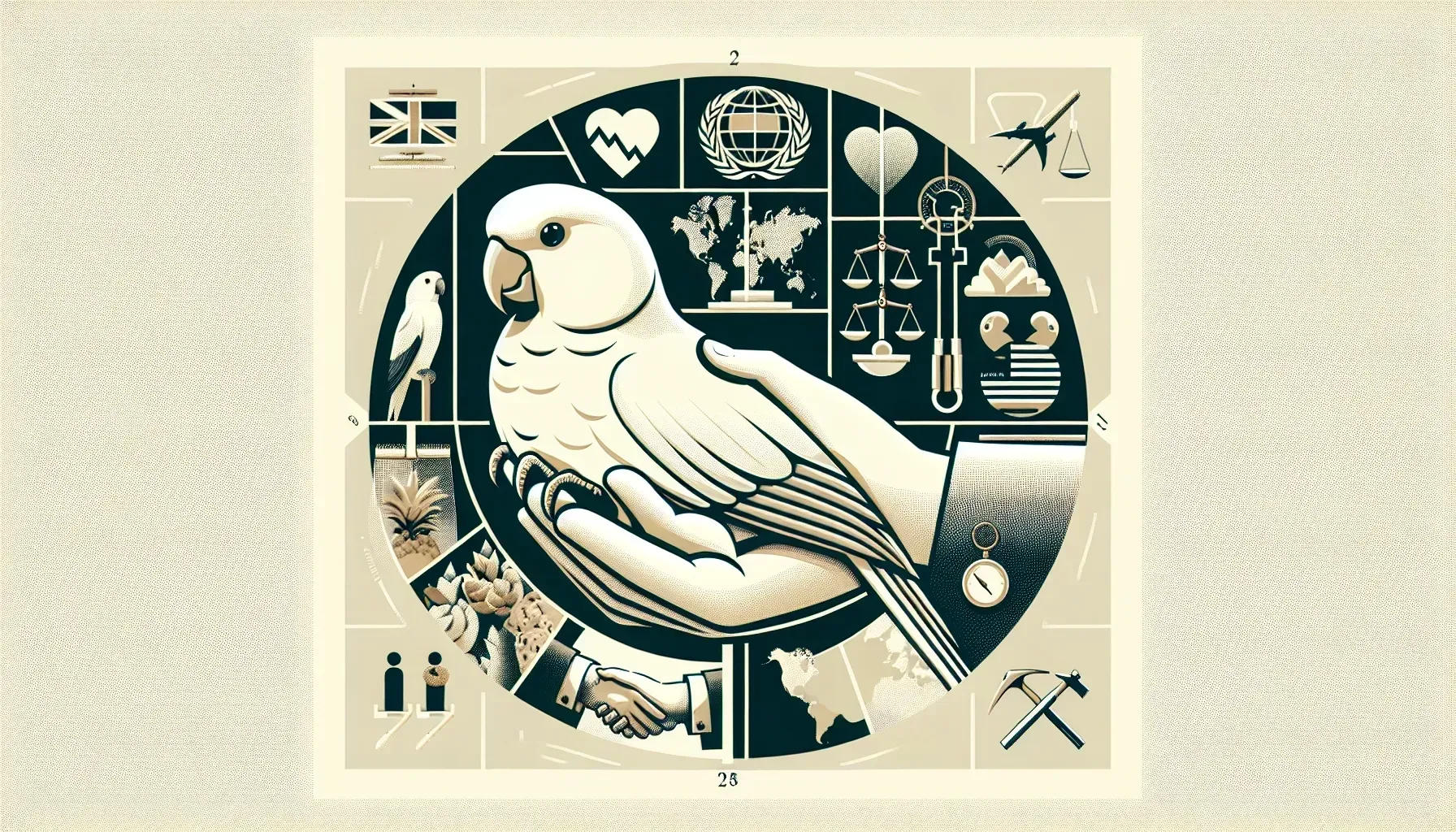Navigating the Waters of International Pet Trade: How Regulations Shape Our Choices

CITES serves as a pivotal regulatory framework governing international trade in endangered species. Its primary goal is to ensure that the international pet trade does not threaten the survival of wild fauna and flora. Understanding CITES regulations is essential for prospective exotic pet owners. The classification of species into CITES Appendices I, II, and III determines the level of protection and trade restrictions. For instance, Appendix I includes species threatened with extinction, and their trade is highly regulated, necessitating import and export permits. Appendices II and III cover species requiring sustainable utilization and species subject to domestic regulations by member countries.
The Role of CITES in Pet Ownership
Import and export laws significantly impact the global movement of exotic pets. Whether you are considering adding an exotic companion to your family or engaging in commercial trading, familiarizing yourself with import and export laws is crucial. These laws vary from country to country, encompassing documentation requirements, health certifications, quarantine protocols, and legal restrictions on specific species. Failure to comply with these laws can lead to severe consequences, including confiscation of pets and legal penalties.
Impact of Import and Export Laws on Exotic Pets
Ethical considerations are at the heart of responsible pet ownership, especially when it comes to exotic pets. It's imperative to assess whether the capture or breeding of a specific species for the pet trade has ecological repercussions or impacts its conservation status in the wild. Regulatory compliance goes hand in hand with ethical considerations – ensuring that every step involved in acquiring an exotic pet aligns with established legal frameworks is essential for upholding ethical standards.
Related Article: The Safe Haven Act: A Closer Look at Enhanced Shelter Regulations
Ethical Considerations in Exotic Pet Ownership
Prospective exotic pet owners must navigate legal channels meticulously. Researching the legality of owning a specific species in one's country or state is fundamental. Seeking guidance from relevant authorities and understanding permit requirements are vital steps in ensuring a seamless and lawful acquisition process. This not only safeguards the welfare of the pet but also prevents inadvertently supporting illegal wildlife trafficking.
The introduction of non-native invasive species through international pet trade poses a significant threat to local biodiversity. Responsible pet trade practices involve stringent biosecurity measures to prevent the inadvertent release or escape of non-native pets into natural ecosystems. Understanding the potential ecological impact of introducing exotic pets into new environments is critical for safeguarding native species and habitats.
A Guide for Future Exotic Pet Owners
The parrot trade exemplifies the far-reaching consequences of international pet trade on wildlife conservation efforts. Many parrot species are subjected to unsustainable trapping practices for the pet trade, leading to population declines and ecosystem disturbances in their natural habitats. Through this case study, it becomes evident how international regulations play a pivotal role in mitigating such detrimental impacts while promoting sustainable practices within the pet trade industry.
Related Article: Nurturing Paws with Policy: Legislative Associations Advocating for Progressive Pet Care Reforms
Strengthening Biosecurity Measures for Native Species
International pet adoption demands careful preparation, including comprehensive paperwork such as import permits, health certificates, and customs documentation. Thoroughly acquainting yourself with the processes involved in acquiring an internationally adopted pet is essential for a seamless transition for both you and your new companion.
The Parrot Trade: Global Implications on Conservation
The influence of international regulations extends beyond borders and directly impacts local pet markets. Restrictive measures on specific species may lead to shifts in demand, influencing local breeding programs or altering the availability of certain pets within domestic markets. Understanding these ripple effects aids in comprehending the interconnected nature of the global pet trade industry.
As advocates for responsible pet ownership, actively engaging in global efforts to promote ethical and sustainable pet trade practices is crucial. Supporting initiatives aimed at strengthening international regulations, advocating for conservation-minded choices, and educating others about responsible pet trade practices contributes to fostering a more conscientious pet trade ecosystem worldwide.
Related Article: The Evolution of Animal Welfare Laws: A Historical Perspective on Modern Pet Care Standards
Preparing for International Pet Adoption
Navigating the waters of international pet trade requires a deep understanding of regulatory frameworks, ethical considerations, and global implications. As conscientious pet enthusiasts, it's our responsibility to uphold ethical standards, comply with international regulations, and actively partake in advocating for responsible pet trade practices globally.
Frequently Asked Questions
CITES, or the Convention on International Trade in Endangered Species, regulates international trade in endangered species to prevent their extinction. It classifies species into three appendices based on their conservation status, dictating the level of protection and trade restrictions. Understanding these regulations is crucial for anyone considering owning exotic pets.
Import and export laws significantly influence the movement of exotic pets across borders. These laws vary by country and include documentation requirements, health certifications, and legal restrictions. Compliance is essential to avoid severe penalties, including confiscation of pets, ensuring that pet owners can legally and ethically acquire their animals.
Ethical considerations are vital in exotic pet ownership as they address the ecological impact of capturing or breeding species for trade. Responsible owners must ensure that their actions comply with legal frameworks and do not harm wildlife populations or ecosystems. This balance promotes conservation and supports sustainable practices within the pet trade.






